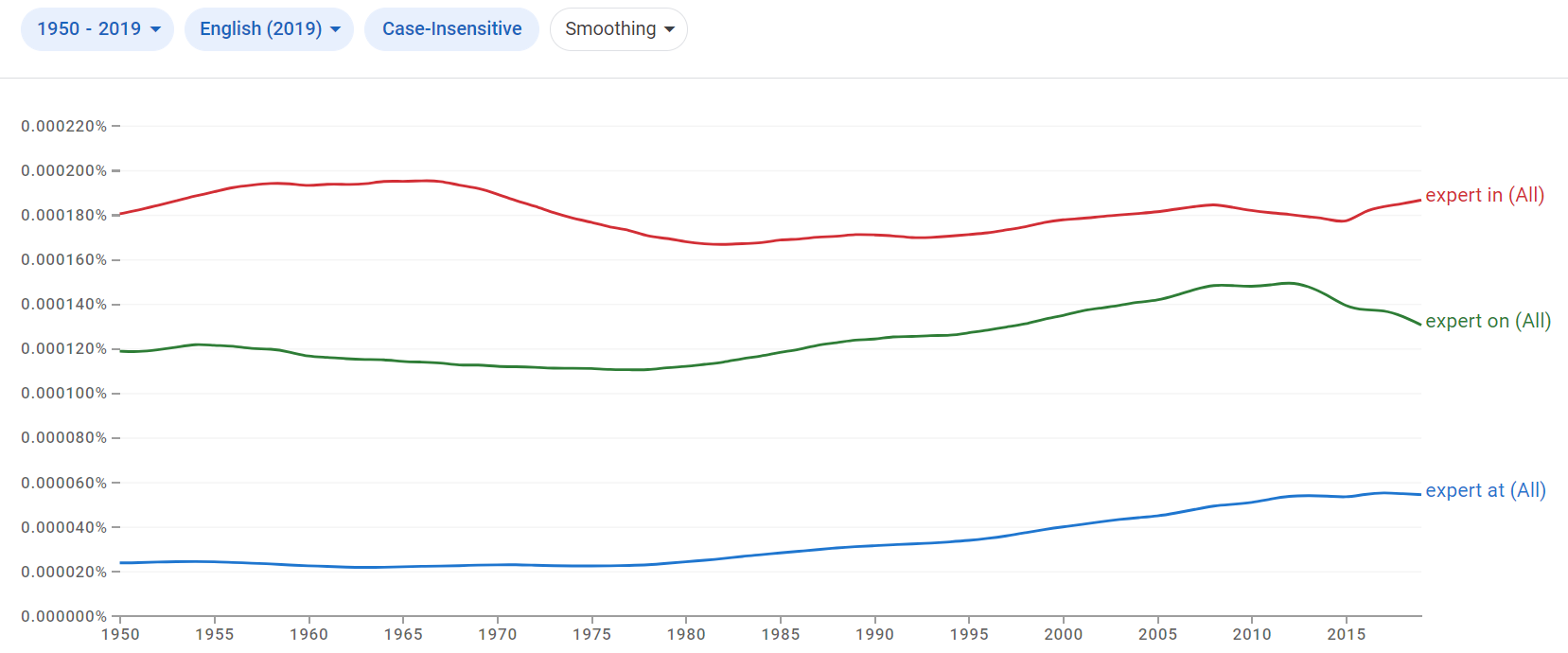"At" suggests that the expert is very skilled at doing a specific activity. "In/on" is commonly used when someone knows a lot about a particular subject.
You can say "an expert at", "an expert in", or "an expert on". All of them are correct and commonly used. However, when choosing among these prepositions, there are some slight differences in meaning to consider. "At" suggests that the expert is very skilled at doing a specific activity. "In/on" is commonly used when someone knows a lot about a particular subject.
Brian is an expert at playing cards.
My sister is an expert in nuclear physics.
What's the difference between "expert in" and "expert on"? While both are very similar, there is a subtle difference in meaning. "In" places the emphasis on the person who has expertise. The preposition "on", by contrast, makes the emphasis slightly heavier on the area of expertise.
My uncle is an expert in microbiology.
We need an expert on solar energy.
We often, but not always, use a gerund to identify an activity with "at".
He's an expert at repairing all kinds of electrical engines.
We can also use "at" if the activity is unusual or hard to explain.
He's an expert at finding missing pets.
Becoming an expert at something really pays off.
Which is the most common? The chart below shows that the preposition "in" is the most frequently used.

Source: Google Books Ngram Viewer

